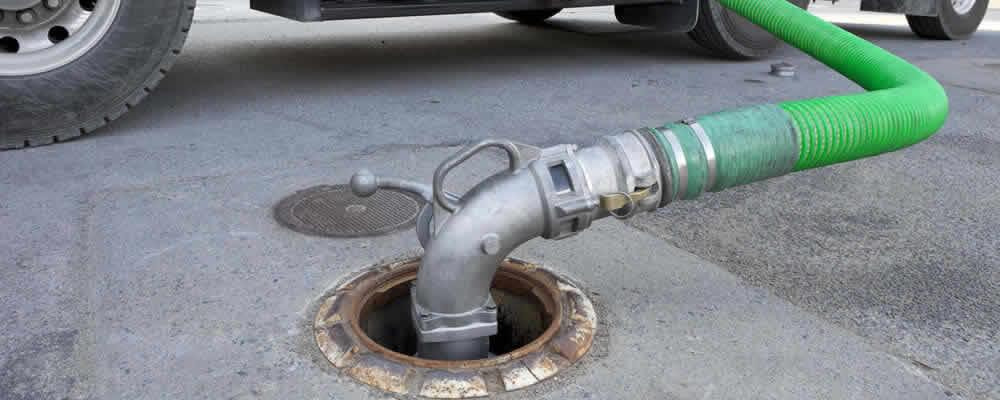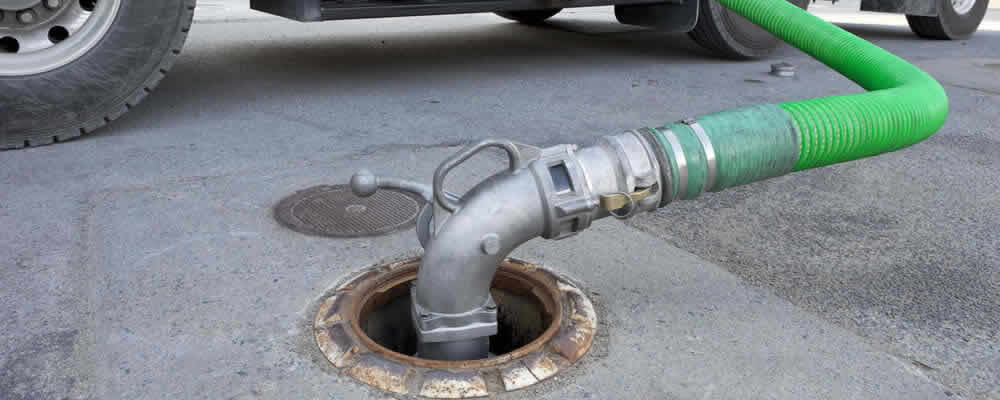Maintaining a healthy waste system is crucial for the overall well-being of your property, and one vital aspect of this maintenance is septic tank pumping in Cape Coral. By regularly pumping your septic tank, you can prevent potential issues like blockages, backups, and costly repairs. This essential maintenance task ensures that your waste system functions efficiently, eliminating any health hazards and ensuring the longevity of your septic system. Don’t overlook the significance of septic tank pumping in Cape Coral; it’s an investment that will safeguard your property and provide you with peace of mind.
Understanding Septic Tank Pumping
What is a septic tank?
A septic tank is an underground wastewater treatment system commonly used in areas without access to public sewage systems. It is a large, watertight container made of concrete, fiberglass, or plastic, and it is designed to collect and treat solid waste and wastewater from households. The septic tank is an essential component of a septic system, which is responsible for the safe disposal of the wastewater generated by a property.
How does a septic tank work?
A septic tank works by separating the solid waste from the liquid waste. When wastewater enters the tank, it undergoes a process of natural decomposition. Solid waste sinks to the bottom of the tank and forms a layer called sludge, while lighter materials float to the top and create a layer known as scum. The remaining liquid, called effluent, flows into the drain field, where it is further treated and eventually absorbed into the soil. The septic tank relies on natural bacteria to break down and digest the organic matter in the waste.
Why is septic tank pumping necessary?
Over time, the accumulation of sludge and scum in the septic tank can reach a point where it compromises the system’s efficiency and effectiveness. If not removed periodically through septic tank pumping, the solid waste can clog the tank and cause backups, drain field failure, and costly repairs. Regular pumping is necessary to maintain the proper function of the septic system and prevent health hazards, environmental contamination, and unpleasant odors.
Benefits of regular septic tank pumping
Regular septic tank pumping offers several benefits for both homeowners and the environment. Firstly, it helps prevent backups and costly repairs by ensuring that the septic system is functioning optimally. Pumping eliminates the buildup of sludge and scum, reducing the risk of clogs and overflows. Furthermore, regular pumping extends the lifespan of the septic system, saving homeowners from the expense of premature replacement. Additionally, it helps maintain water quality by preventing leaks and contamination, safeguarding both the environment and public health. Lastly, regular septic tank pumping ensures compliance with local regulations and helps avoid fines or penalties associated with neglecting proper maintenance.
Signs it’s Time for Pumping
Foul odor
One of the most noticeable signs that it’s time for septic tank pumping is the presence of foul odors. If you detect a strong, unpleasant smell coming from your drains, toilets, or yard, it may indicate that your septic tank is full and needs to be pumped. The odor is a result of gases produced by the decomposition process of the waste in the tank. Prompt action should be taken to prevent any further issues and restore a fresh and clean environment.
Slow draining sinks and toilets
If you notice that sinks, showers, or toilets are draining slower than usual, it may indicate a septic tank that is nearing capacity. When the tank is full, there is less space for wastewater to flow freely, resulting in slow draining fixtures. Ignoring this sign can lead to backups and potential damage to the septic system. It is important to schedule septic tank pumping when encountering slow drainage to prevent any further complications.
Pooling water or wet spots in the yard
Another sign that your septic tank needs pumping is the presence of pooling water or wet spots in your yard, particularly near the septic tank or drain field area. When the tank is full, excess water can overflow and cause these wet areas. This indicates that the system is overwhelmed and cannot handle the volume of wastewater. Immediate action is necessary to avoid damage to the drain field and potential contamination of groundwater.
Gurgling sounds in plumbing system
Unusual sounds, such as gurgling or bubbling, coming from your drains, toilets, or plumbing fixtures can indicate a problem with your septic tank. These sounds occur when the system is struggling to handle the wastewater, and air is trapped in the pipes. If left unaddressed, it can lead to plumbing backups and further damage to the septic system. Septic tank pumping can alleviate this issue and restore normal operation.
Backups or clogs in the plumbing system
The most obvious indication that septic tank pumping is necessary is the occurrence of backups or clogs in the plumbing system. If water or waste is backing up into sinks, toilets, or showers, it signifies that the septic tank is full and needs to be pumped immediately. Ignoring backups can result in extensive damage to plumbing fixtures and costly repairs.
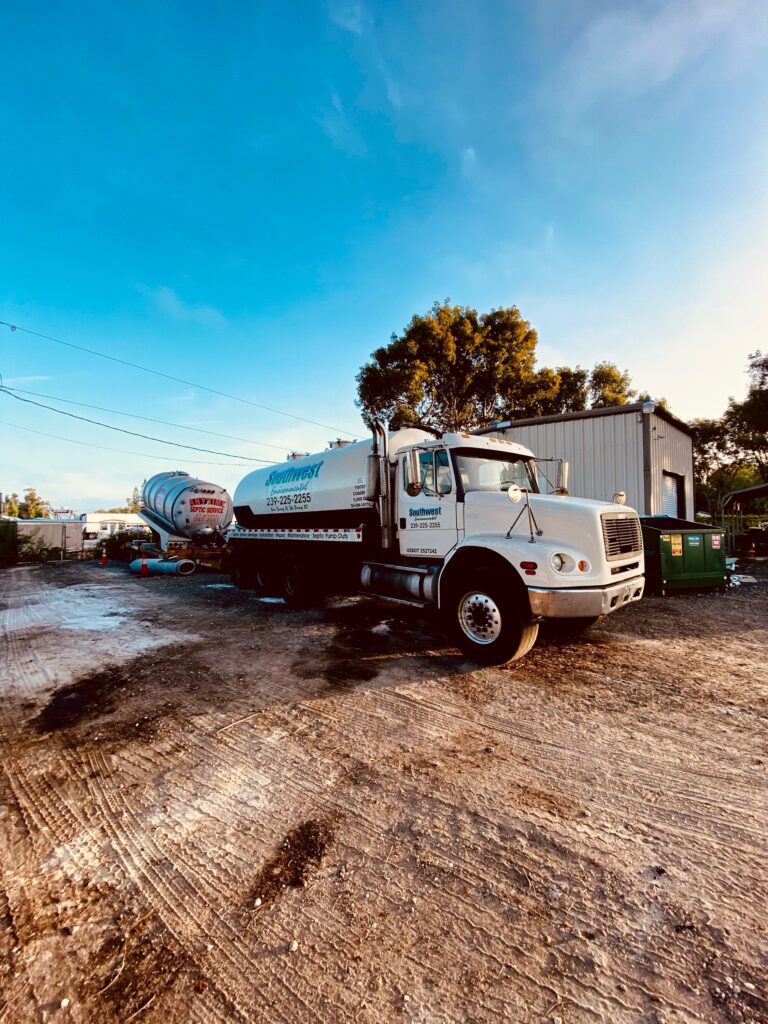
Frequency of Pumping
Factors affecting pumping frequency
Several factors influence the frequency at which a septic tank needs to be pumped. These include the size of the tank, the number of people in the household, the volume of wastewater generated, and the presence of a garbage disposal. Additionally, the type of soil in the drain field, the age and condition of the septic system, and the usage of water-intensive appliances can affect pumping frequency. It is essential to consider these factors to determine the optimal pumping schedule for your specific circumstances.
General recommendations for pumping frequency
As a general guideline, septic tanks should be pumped every three to five years. This timeframe allows for the accumulation of enough solid waste and scum to justify pumping without risking overwhelming the system. However, it is important to note that this is a general recommendation, and actual pumping frequency may vary depending on the factors mentioned earlier. Consulting a professional septic tank pumping service can provide accurate guidance based on your specific situation.
Adjusting pumping frequency based on household size
Household size plays a significant role in determining the frequency of septic tank pumping. Larger households tend to generate more wastewater, increasing the strain on the septic system. Therefore, households with more occupants may require more frequent pumping, usually every two to three years. Alternatively, smaller households with fewer occupants may be able to extend the pumping interval up to five years. Adapting the pumping frequency to match your household’s needs is crucial to maintain the optimal operation of the septic system.
The importance of regular inspections
In addition to septic tank pumping, regular inspections are essential for the ongoing maintenance and health of the system. Inspections allow professionals to assess the condition of the tank, identify any potential issues, and make necessary repairs or adjustments. Inspections can help detect minor problems before they develop into significant and costly repairs. It is recommended to schedule a professional inspection at least once a year, or as advised by your septic pumping service provider.
Choosing a Professional Septic Tank Pumping Service
Licensing and certification
When selecting a professional septic tank pumping service, it is crucial to ensure that they are licensed and certified. Proper licensing and certification indicate that the service provider has met the necessary requirements and possesses the expertise to perform the job safely and efficiently. You can verify this information by checking with local regulatory agencies or by asking the service provider directly.
Experience and expertise
Experience and expertise are important factors to consider when choosing a septic tank pumping service. An experienced service provider will have a deeper understanding of septic systems and their specific requirements. They will be more adept at identifying problems, providing proper maintenance recommendations, and conducting thorough inspections. It is advisable to inquire about the number of years they have been in the industry and their level of expertise in septic tank pumping.
Equipment and technology
The quality of equipment and technology used by a septic tank pumping service can significantly impact the efficiency and effectiveness of the job. Advanced equipment, such as high-powered vacuum trucks and specialized tools, allows for more thorough and precise pumping. This ensures that the tank is emptied entirely, leaving no remnants of sludge or scum behind. Prioritize service providers who invest in modern equipment and stay updated with the latest advancements in septic tank pumping technology.
Reputation and customer reviews
Checking the reputation and customer reviews of a septic tank pumping service can provide valuable insights into the quality of their work. Look for testimonials, ratings, and reviews from previous customers to gauge their satisfaction levels and overall experience. Positive reviews and a strong reputation are indicators of a trustworthy, reliable, and professional service provider.
Cost considerations
While cost should not be the sole determining factor, it is important to consider when choosing a septic tank pumping service. Compare quotes from different providers to ensure you are receiving a fair and competitive price. However, be cautious of extremely low prices, as they may reflect a lack of expertise or the use of subpar equipment. Balancing quality of service with cost is essential to ensure you are getting the best value for your money.
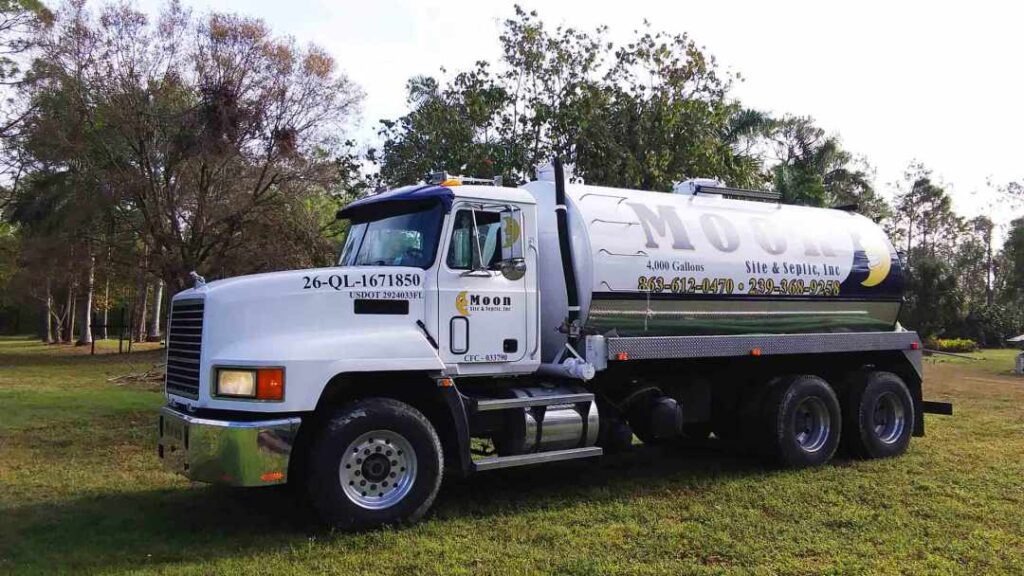
Preparation for Septic Tank Pumping
Clearing the access point
Before the septic tank pumping service arrives, it is important to clear the access point to the tank. The access point is usually a concrete or plastic lid covering the opening to the tank. Make sure any vegetation, debris, or objects obstructing the lid are removed to allow easy access for the pumping equipment. Clearing the access point in advance will ensure a smooth and efficient pumping process.
Locating and uncovering the septic tank
If you are unsure of the exact location of your septic tank, it is advisable to locate it before the pumping service arrives. Septic tanks are typically buried underground, but their general location can usually be found on your property’s as-built plans. Once located, you may need to dig up any soil or covering material to expose the lid of the septic tank. By doing this ahead of time, you can save valuable time for the pumping service and avoid any potential damage to the tank during the excavation process.
Clearing the area around the tank
In addition to clearing the access point, it is important to clear the area around the septic tank. Remove any obstacles, such as furniture, vehicles, or outdoor equipment, to ensure ample space for the pumping equipment and technicians. Clearing the area will allow the pumping service to perform their tasks efficiently and safely, minimizing the risk of accidents or damage.
Preparing the plumbing system
Preparing the plumbing system before septic tank pumping involves taking a few simple steps to ensure a smooth process. Start by ensuring that all drains, toilets, and fixtures in the house are tightly closed. This prevents any backflow from occurring during pumping and helps maintain the integrity of the sewage system. Additionally, it is recommended to run some water through all drains and flush toilets shortly before the pumping service arrives. This helps to flush any remaining waste or debris from the plumbing system into the septic tank, making it easier to pump out.
Taking precautions for safety
During septic tank pumping, it is important to prioritize safety for both yourself and the pumping service technicians. It is advisable to keep children and pets away from the work area to prevent accidents and potential exposure to harmful bacteria and gases. Additionally, it is crucial to follow any instructions or precautions provided by the pumping service to ensure a safe and successful pumping process. Following these safety measures will help protect everyone involved and minimize any risks associated with septic tank pumping.
The Pumping Process
Inspecting the septic tank
Prior to pumping, the septic tank pumping service will conduct a thorough inspection of the tank. This inspection involves visually assessing the condition of the tank, checking for any signs of damage or leaks. The technician will also measure the levels of sludge and scum in the tank using specialized equipment. This information helps determine the appropriate pumping technique and ensures that the tank is pumped to the necessary level.
Pumping out the sludge and scum layers
Once the inspection is complete, the pumping process begins. The technician will insert a hose into the septic tank through the access point and use a powerful vacuum to pump out the sludge and scum layers. The vacuum truck is designed to create negative pressure, effectively sucking up the waste material from the tank. Care is taken to remove as much of the accumulated waste as possible, reducing the risk of future problems.
Cleaning and rinsing the septic tank
After the majority of the sludge and scum has been pumped out, the septic tank may require cleaning and rinsing. The technician will use water from the vacuum truck to rinse the tank, removing any remaining residues and ensuring a thorough cleaning. This step helps eliminate odors and prepares the tank for proper functioning after pumping.
Inspecting the outlet and distribution system
Following the pumping and cleaning process, the technician will inspect the outlet and distribution system. This includes examining the pipes and connections to ensure they are free of obstructions or damage. If any issues are detected, repairs or replacements may be recommended to prevent future problems. Inspecting the outlet and distribution system is an important step to verify that the septic tank is functioning optimally and that wastewater is being properly distributed.
Refilling the tank with water
Once all necessary inspections and cleaning are complete, the septic tank is refilled with water. This process helps balance the water levels within the tank and restores the holding capacity to its optimal level. It is important to refill the tank with water to avoid potential structural damage that can occur if the tank remains empty.
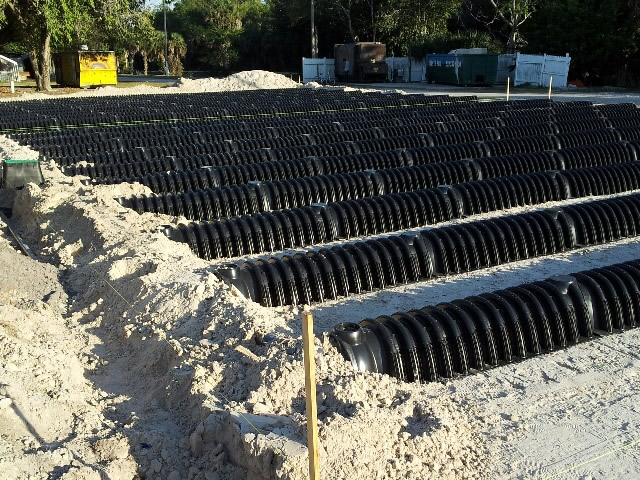
Post-Pumping Maintenance
Inspecting the tank for any problems
After septic tank pumping, it is crucial to conduct a post-pumping inspection to ensure that the system is functioning properly. Check for any leaks, cracks, or signs of damage in the tank or surrounding areas. Pay attention to any unusual odors, gurgling sounds, or slow drainage that may persist after pumping. If any issues are detected, contact a professional septic system service provider immediately to address them before they worsen.
Addressing repairs or replacements
If the post-pumping inspection reveals any problems with the septic tank or associated components, it is important to address them promptly. Ignoring repairs or replacements can lead to more extensive damage to the system and compromise its functionality. Contact a reputable septic system service provider to assess the situation and provide the necessary repairs or replacements.
Adding necessary bacteria and enzymes
To facilitate the natural decomposition of waste in the septic tank, it is recommended to add bacteria and enzymes to aid in the breakdown process. These biological additives help maintain the balance of bacteria within the tank, promoting the digestion of organic matter and reducing odors. Consult with a septic system professional to determine the appropriate type and quantity of additives for your specific tank.
Implementing septic-friendly practices
Proper post-pumping maintenance includes adopting septic-friendly practices to ensure the long-term health and efficiency of the system. Avoid flushing non-biodegradable items, such as wipes, sanitary products, or medications, as they can clog the system. Additionally, practice water conservation by using low-flow fixtures, repairing leaks promptly, and spreading out household water usage throughout the day. Minimizing the use of harsh chemicals, such as bleach or drain cleaners, also helps maintain a healthy balance of bacteria in the tank. Following these practices can reduce the strain on the septic system and prolong its lifespan.
Avoiding Common Septic System Mistakes
Flushing non-biodegradable items
Flushing non-biodegradable items down the toilet is one of the most common mistakes made by homeowners. Items such as wipes, sanitary products, diapers, and paper towels do not break down in the septic tank and can clog the system. To avoid potential backups and costly repairs, it is important to dispose of these items in the trash instead of flushing them.
Excessive water usage
Using excessive amounts of water can strain the septic system and increase the frequency of pumping required. Practices such as running multiple water-intensive appliances simultaneously, taking excessively long showers, or allowing faucets to run unnecessarily should be avoided. Be mindful of water usage and practice water conservation to ease the burden on the septic system.
Using harsh chemicals
Harsh chemicals, such as bleach, drain cleaners, and strong disinfectants, can disrupt the natural balance of bacteria in the septic tank. These chemicals kill the beneficial bacteria responsible for breaking down waste, leading to reduced efficiency and potential odors. Instead, opt for septic-safe cleaners and avoid excessive use of chemicals that can harm the septic system.
Neglecting regular inspections
Neglecting regular inspections is one of the biggest mistakes homeowners can make. Regular inspections are crucial for identifying minor problems before they escalate into major issues. By detecting and addressing problems early on, costly repairs and system failures can be avoided. Make it a priority to schedule annual inspections with a professional septic tank pumping service.
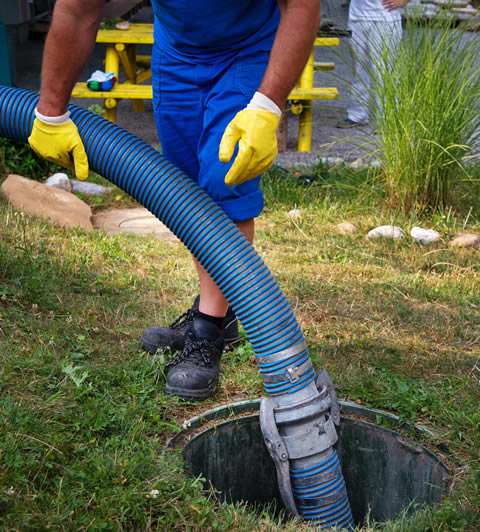
Benefits of Professional Septic Tank Pumping
Maintains the longevity of the septic system
Regular septic tank pumping plays a vital role in preserving the longevity of the septic system. By removing accumulated sludge and scum, pumping prevents clogging and system failures. It helps maintain the ideal conditions for the decomposition of waste, ensuring that the system functions efficiently for many years. Neglecting pumping can lead to premature wear and tear, necessitating expensive repairs or even requiring a complete replacement of the septic system.
Prevents backups and costly repairs
One of the primary benefits of regular septic tank pumping is the prevention of backups and costly repairs. Pumping removes the excess solid waste that accumulates over time, reducing the risk of clogs and blockages that can cause backups. By addressing these issues proactively, homeowners can avoid the inconvenience and expense associated with plumbing emergencies and costly repairs.
Protects water quality and the environment
Proper septic tank maintenance, including regular pumping, is essential for protecting water quality and the environment. A septic system that is not regularly pumped can leak untreated wastewater into groundwater, wells, or nearby water bodies, contaminating water sources and posing a risk to public health. Regular pumping ensures that waste is properly treated and disposed of, preventing pollution and preserving the integrity of water resources.
Ensures compliance with local regulations
Many local jurisdictions have regulations in place that require regular septic tank pumping and inspections. Non-compliance with these regulations can result in fines, penalties, or even legal action. Engaging a professional septic tank pumping service ensures that you stay in compliance with these regulations, avoiding potential legal and financial consequences.
Conclusion
Understanding the importance of septic tank pumping is essential for maintaining a healthy waste system and protecting the environment. Regular pumping prevents backups, reduces the risk of costly repairs, and extends the lifespan of the septic system. By responding to signs such as foul odors, slow drainage, pooling water, gurgling sounds, or backups, homeowners can ensure timely pumping and avoid major issues. Choosing a professional septic tank pumping service with the requisite licensing, experience, equipment, and reputation is crucial for a successful pumping process. Preparing for pumping, conducting post-pumping maintenance, and avoiding common septic system mistakes are integral to the overall health of the system. The benefits of professional septic tank pumping include maintaining the longevity of the system, preventing backups and costly repairs, protecting water quality and the environment, and ensuring compliance with local regulations. By prioritizing septic tank pumping and adhering to a regular maintenance schedule, homeowners can enjoy a healthy waste system and peace of mind.
